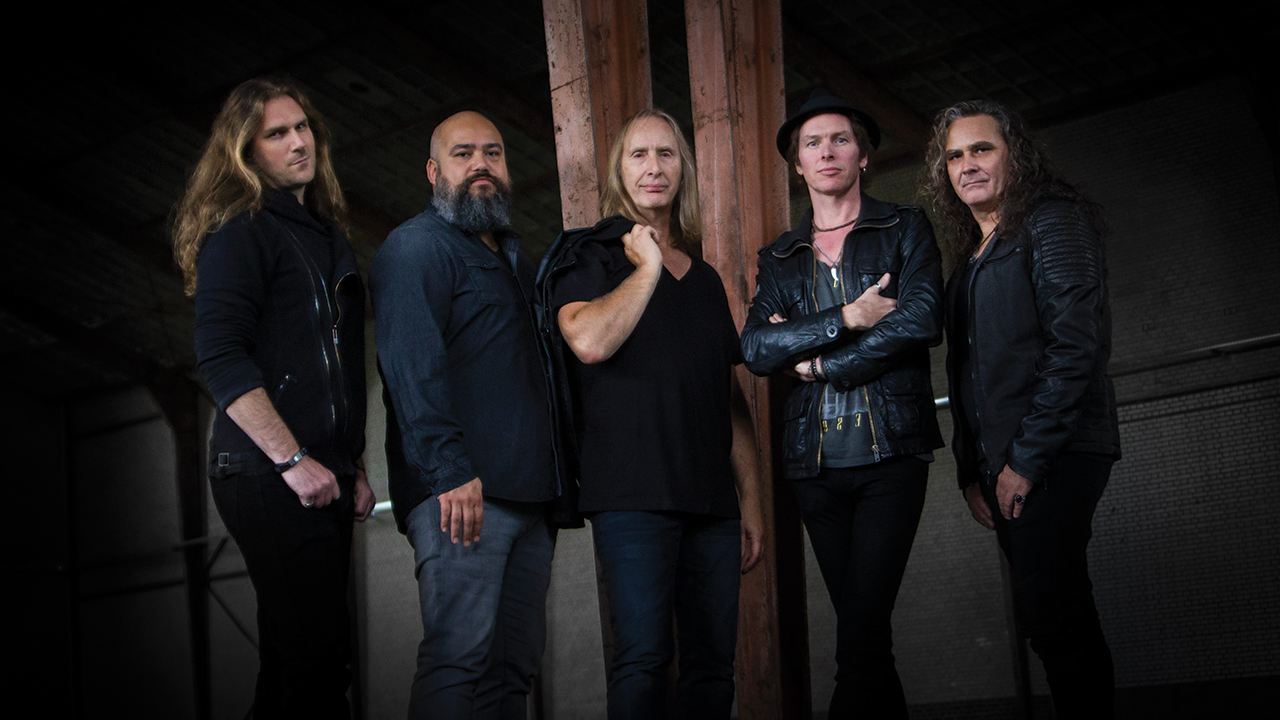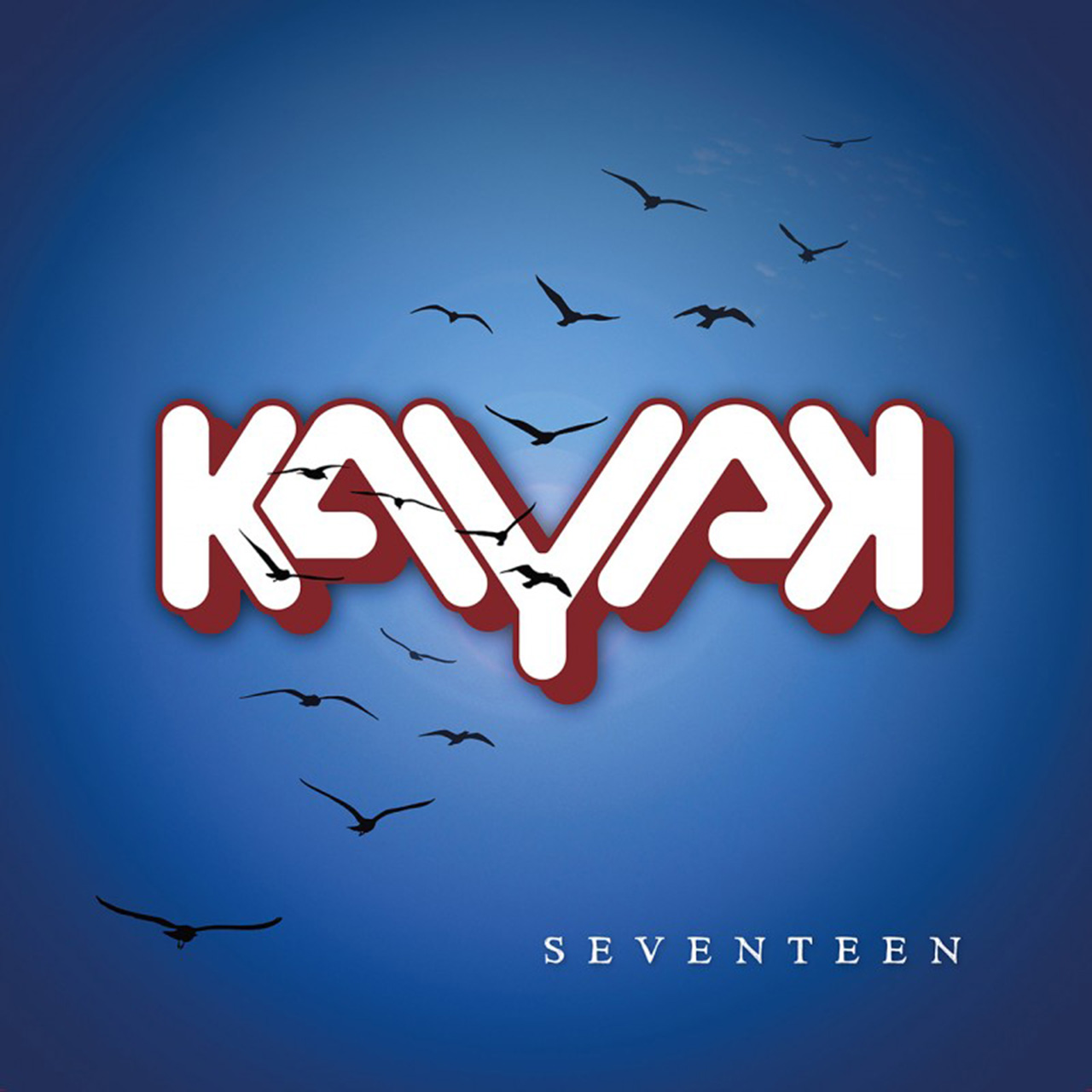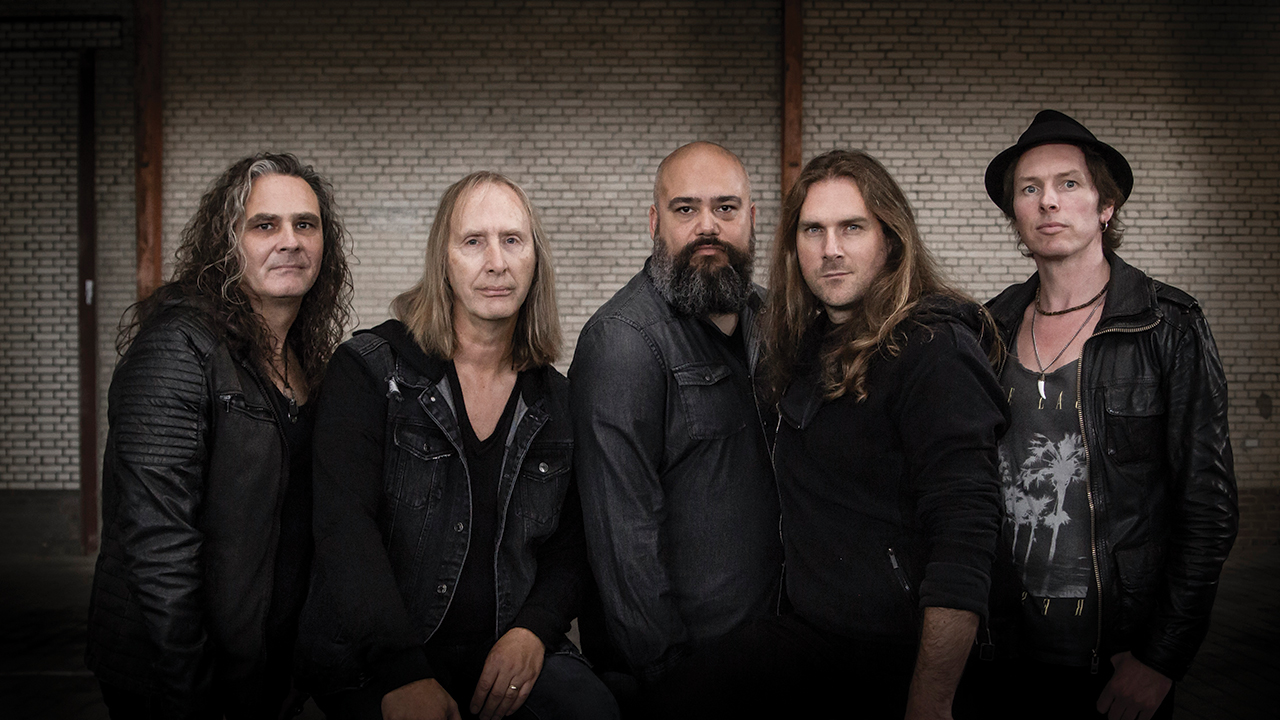“It’s only afterwards that you realise, ‘Hey, Kayak could really have been something.’.”; the story of the Dutch proggers and their 2018 album Seventeen

Dutch proggers Kayak came close to breaking America in the 70s, but a number of factors got in the way. In 2018, when the band released Seventeen, Kayak’s last remaining original member Ton Scherpenzeel looked back over their career and discussed what went wrong, his hopes for the future and his fear of flying…
Nor should there be any, of course. Kayak’s history dates back to 1972, when the teenaged Scherpenzeel and drummer Pim Koopman became friends at a volleyball club in Hilversum. The pair knew their eventual lead vocalist Max Werner as a fellow student at a local music conservatory, completing the team with guitarist Johan Slager and bassist Cees van Leeuwen. The band achieved huge success right off the bat with the following year’s debut album See See The Sun and its hits, Lyrics and Mammoth.
“We were very young then. Too young, in fact,” Scherpenzeel considers. “They called us a supergroup, but we hadn’t even left Holland. All the same, with two Top 20 singles at home, it was as good a start as anyone could have wished for.”
For a period of five albums, Kayak enjoyed stability, until, in a reverse ‘Phil Collins in Genesis’ scenario, Max Werner decided to abandon the mic and become a drummer. The timing of such a switch could not have been any worse, as 1978 had seen their single, Want You To Be Mine, reach Number 55 on America’s Billboard chart and threaten to climb higher still. Forced to seek a replacement singer and unable to tour there thanks to Scherpenzeel’s fear of flying, Kayak’s American dream was abandoned to wither and die.
“Max hated his own voice – he had never wanted to be the lead singer when we started,” Scherpenzeel states. “So he told us, ‘If you want me to remain in the band, I will drum.’ He wasn’t the best drummer in the world, but we rationalised that if he stayed, we’d still have his voice along the drums, and we’d find a new singer. In those days, without the internet, America felt a lot further away than it does now. Everything was done by letters and phone calls but without having to change things around something very big could have happened for Kayak there.”
Decades afterwards, disappointment can still be heard in Scherpenzeel’s voice. To have come within touching distance must have been especially heartbreaking?
“At the time, the full significance didn’t really dawn on me,” he admits. “We had
a number one album in Holland and we were busy, but it’s only afterwards when you see the paperwork and statistics, when they’re out there on the internet, that you realise, ‘Hey, Kayak could really have been something.’”

In 1982, the group called it a day due to what Scherpenzeel now describes as
“a combination of many different setbacks, including financial issues and personal and musical problems”. The fact that Max Werner had a solo hit in Germany represented an additional hurdle. “There were also difficulties with our manager and we just didn’t function anymore,” Scherpenzeel relates sadly. “The spirit was gone: it was like Spinal Tap all over again.”
Scherpenzeel used Kayak’s absence to join Camel from 1984 onwards. With the
two bands sharing a US label, Janus Records, Scherpenzeel was thrilled to hook up with Andy Latimer and company, alternating between full-time band membership and touring muso status and appearing on Stationary Traveller, the live album Pressure Points, Dust And Dreams and Rajaz. It was the keyboardist’s problems with aviation that made it difficult for this relationship to continue. Despite having sought various potential remedies, things haven’t really changed for him.
“If it is not really necessary for me to fly, I won’t do it,” he sighs.
Almost two decades after they broke up, Kayak were invited to appear on a popular Dutch TV show. Things went so well that Scherpenzeel had no qualms
with a permanent reunion, though this wasn’t as simple as it sounds.
“I had remained in contact with Pim Koopman, the other important member of the band who, besides drumming, also wrote and produced, and we took things slowly at the start,” he relates.
In fact, Scherpenzeel and Koopman first discussed working together again in 1995, but it would take a further four years for Kayak to be reborn. “We had a manager who forbade us to use the name,” Scherpenzeel explains. “He was a lunatic – a genius, but a lunatic all the same. It took his death in ’98 for us to receive the all-clear.”
Regrettably, Koopman also died unexpectedly in 2009. In 2014, several
line-ups later, a further obstacle arose when Kayak lost co-lead singers Edward Reekers and Cindy Oudshoorn before a tour for the rock opera Cleopatra – The Crown Of Isis, a project that the group had spent two years preparing for. Kayak’s current biography pointedly describes those exits as “unexpected and inconvenient”.
“I cannot say it any better than that,” comments Scherpenzeel through gritted
teeth. Kayak replaced a man and woman with a solitary male – Bart Schwertmann – and their latest, all-new line-up also includes Kristoffer Gildenlöw, formerly of Pain Of Salvation, though Scherpenzeel played most of the album’s bass parts himself.
So belated was Kayak’s tie-in with InsideOut that, following a Pledge Music campaign, an original pre-sale date was delayed. However, Scherpenzeel is thrilled by the possibilities of association with one of the biggest and most forward-thinking labels of the genre.
“This is the first time in 12 or 13 years that we’ve had a record label,” he chuckles. “Self-releasing your music is fine, but the experience taught us that to take things further you really do need extra support.”

Kayak’s music is certainly blessed with commercial potential. The tracks Somebody and God On Our Side, for instance, are melodic enough to pass as pop songs, though at 11 and 10 mins respectively the grander pieces La Peregrina and Walk Through Fire really allow them to stretch out.
“For me, music must sound organic – it’s not a matter of how clever it is,” Scherpenzeel stresses. “I love shorter songs just as much as the epic ones. Those are more of an adventure, but the format of verse-chorus-verse-chorus is just as fulfilling. Pop music has been a part of our repertoire: we are a two-sided band and that has sometimes confused our audience, but it’s something that I cannot change.”
Andy Latimer is a guest on Ripples On The Water, a beautiful instrumental piece
that Scherpenzeel wrote intentionally for the guitarist.
“Andy has such a style, he plays one note and you know it’s him,” Scherpenzeel smiles. “I’ve always loved Camel’s music. His playing and my own are a good fit, I think. We come from the same soul. Maybe I’ll go back to Camel someday: it’s up to Andy.”
In the meantime, Kayak look set to be busy over the next couple of years. As mentioned above, they last performed in the UK back in March 1977 on a bill with Jan Akkerman and singer Kaz Lux who were promoting their concept album Eli.
“Jan didn’t want to play any Focus material which left the audiences disappointed, so it was cut short,” Scherpenzeel recalls.
Unfortunately, this was the band’s one and only foray to Britain to date. After such a long time, of course Scherpenzeel is anxious to return under more favourable circumstances. And luckily, with just the English Channel between our two nations, transatlantic flights are unnecessary.
“No,” he laughs. “European gigs are always possible – I did some two years ago with Camel. Of course Kayak want to play wherever possible. It’s all down to budgets. If people buy the album, everywhere we can play we will play. After three weeks the bus gets stinky, but I love being on the road.”
